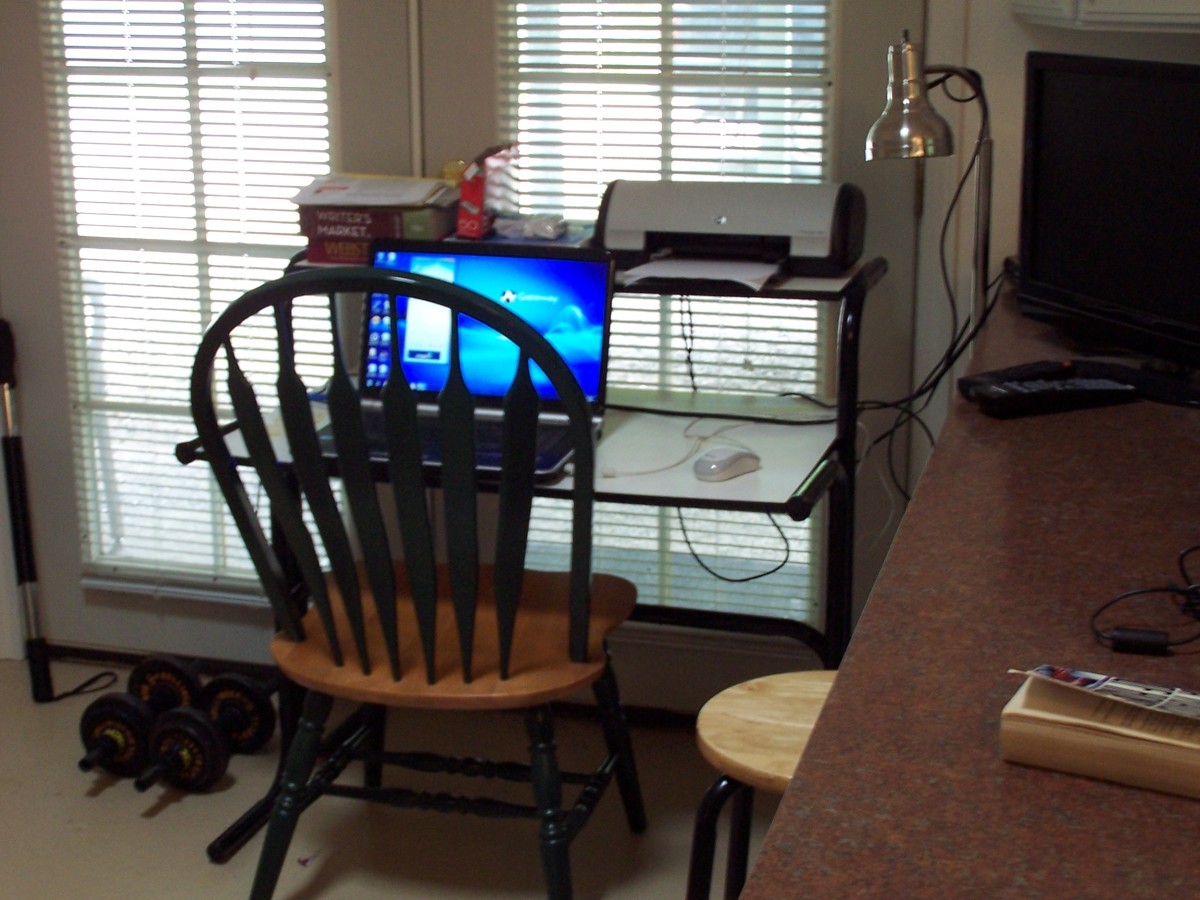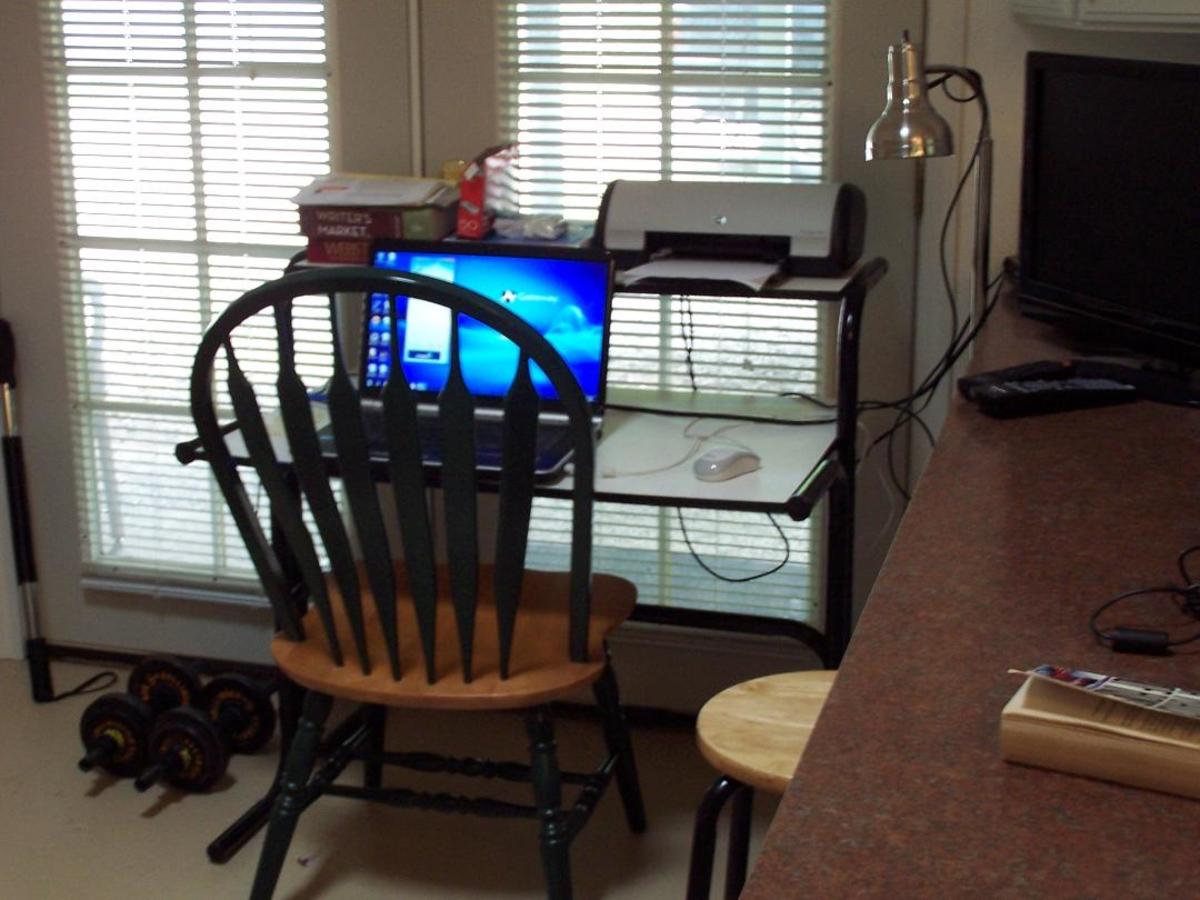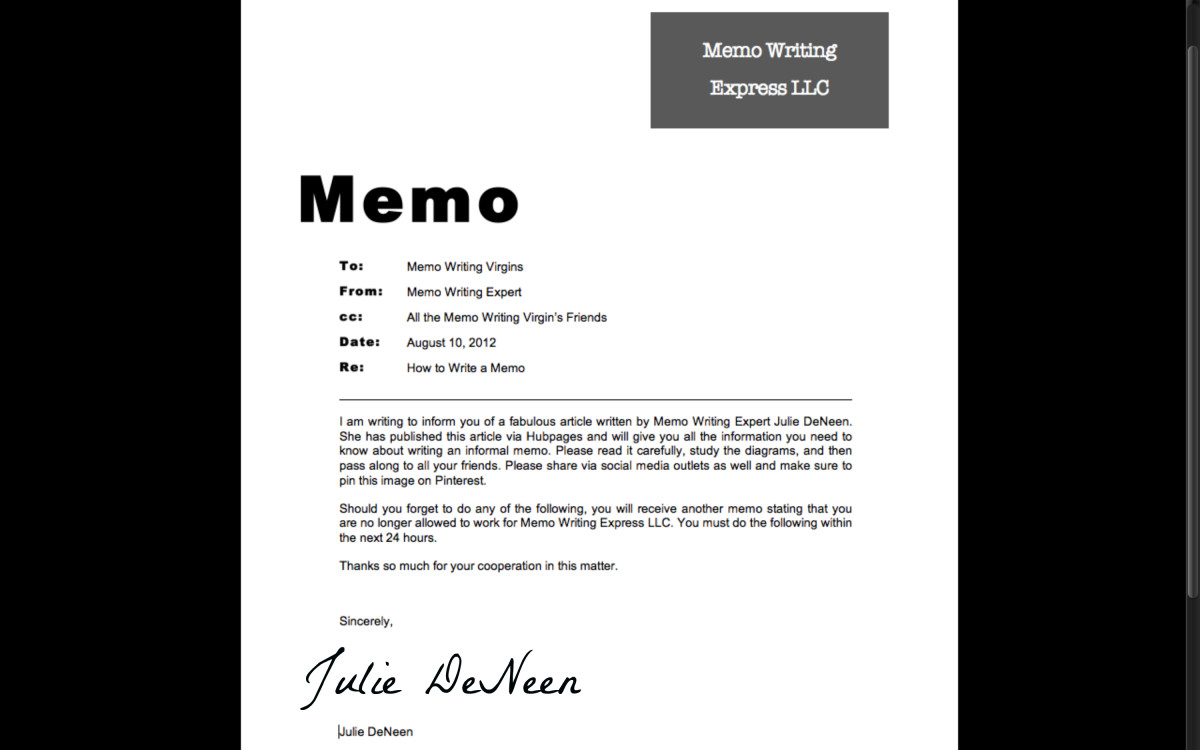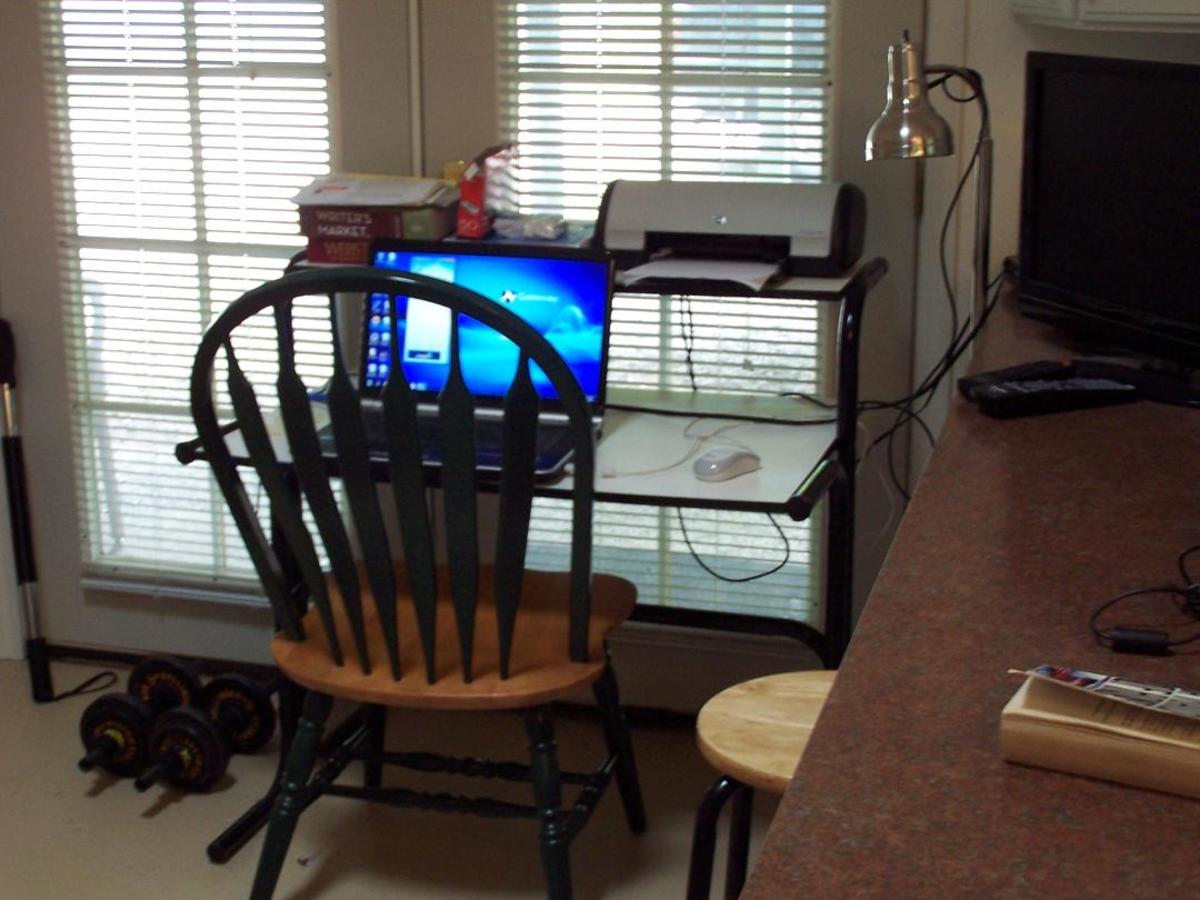The Writer's Mailbag: installment Ninety-Six
Welcome Back
Thanks for joining me for another installment of the Mailbag.
You know, I’ve said this many times, but let me say it once again….I love the writer’s community found at HubPages. I’ve also said I’m not terribly in love with the HP site, but I stay here and I thrive because of my fellow writers here. I love the support we give each other and I love the friendships formed.
As many of you know, I am busy writing a series of novellas called “The Billy the Kid Chronicles,” all of which are self-published. That self-publishing would not be possible if it were not for a friend of mine here at HP by the name of Mike Friedman. Many of you know him as MCKBIRDMKS on HP. Anyway, Mike does the covers for my novellas and novels and I am so very appreciative of his work and his giving nature.
Having said that, I think it would be fantastic if you took a look at his latest book, and if you are in need of a cover for your own self-publishing, you might drop him a line. I’ve found his prices very reasonable. You can buy his book by clicking on the ad to the right.
Thanks Mike!
Now let’s get on with the Mailbag!
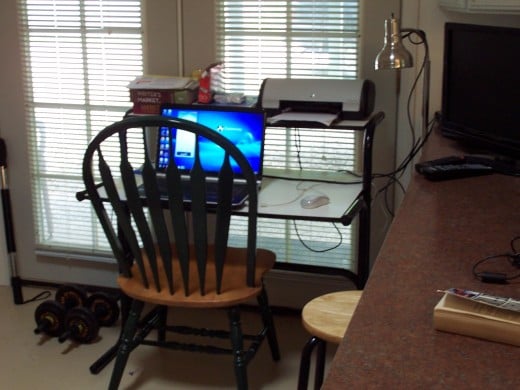
Character Personalities
From Linda: “Good morning Bill. I have a question for your consideration. Of all of the stories you have shared with us on HP, my favorite is "When the Corn Died" with the Harper family. The dialogue you create for them sounds so very authentic and comfortable--they are real people to me. So that brings me to the question--When you create characters for a story do you first consider what their personalities will be like before you begin to write, or do they develop along the way? As I write this I am thinking specifically of Tolkien. He went so far in his story telling that before he began he drew a map of Middle Earth and created a language for the inhabitants. He worked on making Endor a real place before he began telling the tale.
“Another question--when you write, does the story move the characters or do the characters move the story?”
And good morning to you, Linda! Two fine questions deserving two fine answers. Let’s hope I have them in me.
When I create characters, I write a basic outline of their character traits and physical description. Then I write a short back story about them…where they came from, important events in their lives, that sort of thing. After that I turn them loose in the story and they develop more as the story develops. Really, if you think about it, that’s how we all develop. We all have some back story from our earlier lives, and we all grow and further develop as we get older and we experience more life. So, in other words, I’m just letting my characters grow up naturally without too much interference from me.
Now on to your second question: I begin with a basic outline of the story in my head….or you could call it a storyline if you prefer. I know basically what I want to happen, and I have a notion of what is going to drive the story along and of course, how it will end. After that I turn the characters loose and let them get from Point A, the beginning, to Point Z, the conclusion, in their own way. In other words, my stories are always character-driven.
As an example, two of my novels began as writing exercises. I wrote a creative opening paragraph and the character kidnapped the story from that point.
Good-paying Editing Jobs
From MizB: “I have a question. Is there a market for freelance editors, and where would one look for people who need, perhaps I should say be willing to pay, good editors? Writers are a dime a dozen, but good ones are not. I think good editors are probably even more rare, and I am a very good one. I would like to get something besides volunteer work lined up before I retire.”
MizB, I feel your pain, but I don’t think you’ll like my answer.
Finding good-paying freelance gigs is not as easy as simply going to a specific site and grabbing them up. They are out there, but it takes time and persistence to find them and then get hired for them.
My suggestion takes time: Establish yourself in the writing community. Build an online social platform. Get the word out that you are an editor. Have business cards printed. Write articles about editing. Establish yourself as an editing expert…..all of these things take time but, in the long run, they will free you from the content mills and make you decent money.
Sorry, no quick fixes this time. And I know you know most of this if not all of it already.
Fresh As a Daisy
From Ann: “My question: How do you stay as fresh as a daisy in your writing even though you've written several series and a few novels? It's not easy to stay upbeat and maintain the quality of work so what's your secret?!”
Ann, I’m laughing. I’m not sure if I have a secret. I absolutely love writing. I adore the process. I am thrilled that my creativity has an outlet and all these silly little notions packed into my brain from sixty-seven years of observing can escape on paper.
I never thought of myself as a creative person. Truthfully! I just felt like an outsider who was always observing people and life, an awkward and shy person on the periphery of life, just outside the circle of cool kids, always hurrying to catch up to the latest trends. I guess what I’m saying is sooner or later, all that observation had to be released. My brain was on overload and I had to dump some data….and writing has allowed me to dump in a satisfying way.
My biggest problem is I have too many ideas. I have three novels that need to be written, and two short story series that don’t seem to want to die, and my God, Ann, I’m not getting any younger, so hurry I must!
Fresh as a daisy? I sure don’t feel fresh. LOL

Painting the Scene
From Brian: “I like your visceral reaction advice. When you write the first draft of a scene, do you imagine the dominant emotions of the scene at the same time you imagine the action and as you develop the scene do you intentionally evoke those emotions, as an integral part of the scene? Or do you just write what happened according to your imagination and trust that that will evoke appropriate emotions without your consciously focusing on them? Or other? Do you outline or rough sketch a scene first—Lear wanders about a heath in a thunderstorm, yelling at the wind about his daughters— and then imagine and color-in the emotions through choices of words, images, and figures of speech? Or do you develop a scene from a central mix of emotions—Lear feels distressed, guilty, and betrayed, and it is all more than he can take and keep his sanity; what's a scene that would express that? Or? And how do you discern if the feelings of a scene ring true?”
Brian, this is one of the greatest questions ever asked on the Mailbag. This deserves an article in response, but I don’t have the time.
When I write a scene I write the action of the scene first. My first draft is all about telling the story and establishing the rhythm of the story. There is no editing done and there is no foo-foo added. As they once said on Dragnet, “just the facts, ma’am.”
My second draft is all about evoking emotions. That’s when I ask myself “how would the characters feel if faced with this situation?” That’s when I use the senses to help the readers feel what the characters are feeling.
I know others who do the exact opposite. What can I tell you? My way is always best! LOL
More on Freelancing
From Denise: “I just love the content mill comments. You make great points and as a freelance artist, I suffer some of the same problems. There are places to go where you can get jobs but they pay peanuts or less but when you are desperate enough and if your name/brand isn't established, it's what you do. Plus I find that the economy hasn't really caught up to the creative crafts yet. Correct me if I'm wrong but aren't the arts still suffering even though they say the economy is doing better? I know many galleries that have closed and artist who are finding their job flow still drying up. Maybe we are the last to "recover" after drastic cut-back events. Maybe you could save this one for the next mailbag...”
Denise, you aren’t wrong at all.
The funny thing about the poor pay from content mills? We only have ourselves, as writers, to blame. If all writers out there refused to write for peanuts, better pay would be offered. Simple truth of supply and demand.
But the economy and fate dictate the play we are in, so many struggling writers have to work for peanuts and yes, the Arts are lagging far behind as the economy recovers. Look no further than the schools for proof of that. Funding for the Arts in education is always one of the first funds to be cut from the budget….parents demand better test scores in math and science, budgets are written in response to that demand and the Arts become after-school programs run by volunteers.
Supply and demand!

Looking for the Magic to Return
From Kailey: “I used to be able to write at the computer for hours, unaware of how much time was passing. Now, it's more sporadic, even when I have an outline. Do you have any advice to get that back?”
Kailey, I’ve got nothing!
How’s that for honesty? LOL It may not be the honesty you wanted but there you go.
I don’t think one can force creativity. I think it’s either there or it’s not, and trying to force it is a complete waste of time.
Go out and experience more life. Go live! Try new experiences. In other words, get away from forced creativity and I’m willing to bet creativity will return on its own accord.
Turns out I did have something!
Wanna hear a story? Sure you do! In high school and college I was a pitcher for our baseball teams. My junior year in college I "threw out my shoulder," which is a nice way of saying I tore the shit out of some ligaments. After the injury I couldn't throw a baseball ten feet, let alone throw hard from the pitcher's mound.
For two years I didn't throw a baseball at all. This was back in the days when they didn't operate on the shoulder for an injury like that...they just let nature take its course. After two years I started playing again and I could throw harder than before the injury.
There's a message in there for you if you look hard enough.
Two Questions from Mary
From Mary: “I have a couple of questions for a future mailbag. Do you ask for help in your writing from Bev or other people? For example ' as black as an ex-lover’s heart' do you bounce various ideas between yourselves to see which is better? Also you have mentioned that you take a voice recorder to hear the way people speak. Do you ever use one to dictate stories for later typing? I know Barbara Cartland (romance writer) used one. Apparently this helped her to write 23 novels in a year!”
Hi Mary! Thanks for the questions.
I rarely ask for help in my writing. Bev is a busy person and she just doesn’t have the time to help me with this. Having said that, I was writing a new introduction for a new novella the other day, and we collaborated on it, but that is very rare. It’s too bad, too, because between the two of us, Bev is easily the most creative. She’s a great idea person.
Do I dictate stories? Never! If I have an idea for a story I go to the computer and I start a new document with a title and perhaps an opening paragraph. Then I’ll save that and return to it when I have time.
Here’s an interesting fact about me: I’m not terribly creative when I’m doing other things. Ideas don’t spring into my head while I’m walking around, but observations are made and the incubation process begins….then when I’m at the computer later, that incubation process will hatch ideas and stories.
That’s All
To quote Bernie Sanders, this Mailbag was HUUUUUUUUUGE! Thanks so much for the questions. I hope the answers were satisfactory.
Don’t forget to buy Mike’s book. He’s a good guy, a very talented writer and, well, he’s my friend.
2016 William D. Holland (aka billybuc)
“Helping writers to spread their wings and fly.”


